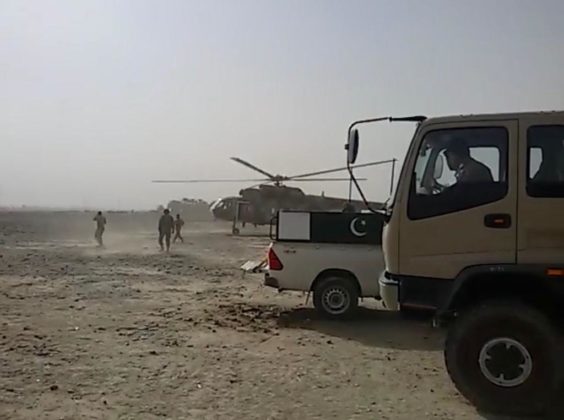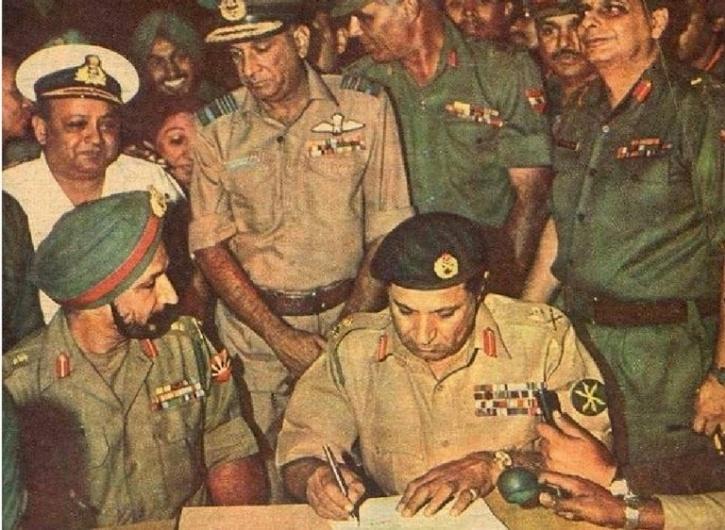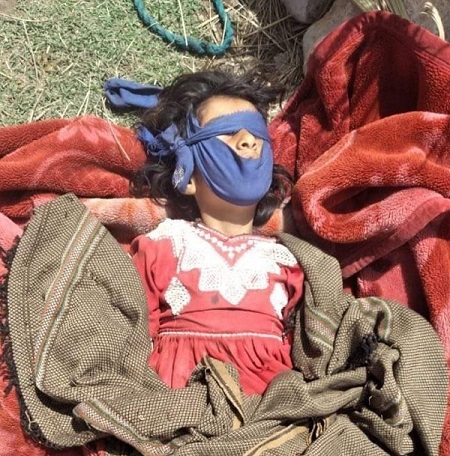
Indian subcontinent was bifurcated and Pakistan created on the 15th August 1947. Two nations theory was used as an ideological tool for getting India divided into two states of Bharat and Pakistan. Such an ideology was fabricated and was far from reality. Factually Muslims of Indian subcontinent weren’t a nation, they were just part of a broader Muslim ummah comprising of believers from different people. This fact became obvious within three months after the creation of Pakistan.
In November 1947, a key resolution at a national education summit in Karachi proposed Urdu and English as the sole state languages despite the fact that either of the two proposed languages belonged to the people of any regions of Pakistan. So language resolution was strongly opposed by the Bengalis in East Bengal, the non-contiguous part of Pakistan who made up 44 million of newly created Pakistan’s 69 million population. Protests erupted across Bengal. Many Bengali students held a meeting in the Dhaka University campus on December 8, 1947 to formally demand that Bengali be made an official language. To promote their cause, students organized protests and rallies in Dhaka.
Despite strong opposition from Bengalis, the Bengali language was omitted as an official language which prompted organized protests and gradually changed into a broader movement which was answered with use of brutal force.
In the height of that unrest Mr. Jinnah, the founder and governor general of Pakistan arrived in Dhaka on 19 March 1948. On 21 March at a reception at Race Course Ground, Dhaka he blamed that language issue was designed by a “fifth column” to divide Pakistani Muslims. Jinnah, in his speeches of 24 and 28 March 1948, reasserted his “Urdu only” policy.
Language issue was the first crack in this so called “two nations” ideology. Despite fraudulent annexation in Pakistan of the British Balochistan’s Baloch and Pashtun regions in 1947, invasion on parts of Kashmir, forcible occupation of entire Balochistan in March 1948, introducing infamous parity or one unit system in 1955, still Bengalis formed the majority of Pakistan’s population but were treated as a lesser people.
“After Bangladesh: Pak Pow’s Baloch Genocide”
With passage of time Punjabi dominated West Pakistan’s continuous atrocities on Bengalis and oppressive policies united the Bengalis under the leadership of Sheikh Mujibur Rahman.
After more than a decade long martial law when general elections were held in Pakistan on December 7, 1970 the Awami League of Sheikh Mujibur Rahman won an absolute majority of seats in the National Assembly of Pakistan and all seats in East Pakistan. In the provincial elections, held ten days later, the Awami League again swept the all the seats save 2 in the East Pakistan’s provincial assembly.
After elections, initially the then President of Pakistan General Yahya Khan indicated to transfer the power to elected majority party. He met Z.A. Bhutto on 28 December 1970 and the following day a proclamation was issued that the first session of National Assembly would be held at Dhaka. Gen Yahya visited Dhaka on January 12, 1971 met Sheikh Mujibur Rahman and on his return to Karachi he said that Sheikh Mujibur Rahman would be the next Premier. But instead of summoning the national assembly, Gen Yahya Khan delayed the inaugurating of National Assembly on one or the other pretext which escalated unrest among the Bengali people.
The Awami League was being denied transfer of power in federal capital because Punjabi dominated Pakistan Army and bureaucracy didn’t want the majority party from East Pakistan to form government at the centre and lead the country.
Bengali resentment took the shape of widespread protests. West Pakistan’s Punjabi dominated army launched “Pperation Searchlight” against the people of East Pakistan on the night of 25 March 1971.
On 26 March 1971, responding to Operation Searchlight, Mukti Bahini declared war for the liberation of Bangladesh. Islamic extremists and Biharis in Pakistan sided with the Pakistan Army. Pakistan formed private militias namely Al-Shams, Al-Badr and Rizakars and armed them against Bengali freedom movement.
Pakistan Army and its proxy militias massacred Bengali nationalists, teachers, students, intelligentsia and general people at a large scale. After World War-II, Operation Searchlight was the widespread systematic genocidal war against common people.
In the short span of only nine months the savage Pakistan Army and its proxies martyred three million innocent Bengalis including women and children, raped thousands of women, displaced million people and forced them to take refuge in neighboring India. The provisional government of Bangladesh was formed on 17 April 1971 in Mujibnagar and was moved to Calcutta, India as the Government in Exile.
India joined the war on December 3, 1971 after Pakistan launched so called preemptive air strikes on north India. Allied forces of India and Bangladesh rapidly overran the war theatre. Within 13 days of India’s joining the war, Pakistan was brought to its knees. Pakistan Army surrendered on 16 December 1971, before joint forces of Indian Army and Mukti Bahini- National Liberation Army of Bangladesh.

Lt. General Amir Abdullah Khan Niazi, Chief Martial Law Administrator of East Pakistan signed the Instrument of Surrender before Lt. General Jagjit Singh Aurora of the Indian Army. India captured more than 93,000 Pakistanis including more than 79,000 army personnel as war prisoners. It was the largest surrender of any army since the World War-II.
The humiliating defeat of Pakistan in Bangladesh provided a historic opportunity to both India and Baloch leadership to take advantage of the moment. It was the right time for India to get the Pakistan-occupied Kashmir (POK) reunited with Kashmir. Similarly it provided Baloch leadership with ever best opportunity to get rid of Pakistan’s forcible occupation and colonial rule. But both, Baloch and India failed to avail this opportunity.
India immediately offered a ceasefire which was accepted by Pakistan. India concluded Shimla Agreement with Pakistan, returned 13,000 km of land that Indian troops had seized in West Pakistan during the war, and released within 5 months all the PoWs (Prisoners of War) including those 195 soldiers who were sought for war crimes by Bangladesh.
As soon as Pakistan’s PoWs were released in 1972, Pakistan’s Punjabi dominated army and establishment pushed Z.A. Bhutto to respond to Baloch leadership’s silence during the 1971 war and their goodwill gesture in the process of enacting constitution for dismembered Pakistan with a fierce military operation in occupied Balochistan. Pakistan’s central government dissolved NAP’s elected Balochistan government in February 1973 within nine months of its formation in April 1972.
Baloch leaders along with NAP leaders were arrested, charged with high treason before an special tribunal known as Haiderabad Tribunal comprised of handpicked judges. Thousands of innocent Baloch including students, political activists, tribal were brutally were killed by Pakistan Army during the five year long armed conflict of 1973 to 1978. Thousands of Baloch families were forcibly displaced, their herds and valuables were plundered by the Pakistan Army. One reason, out of numerous others, behind that savage operations of Pakistan Army was to boost the morale of Pakistan’s defeated and humiliated army by unleashing them against innocent and militarily untrained Baloch people.
Since 2000 Pakistan has again launched a large scale military operation in occupied Balochistan. Thousands of Baloch families have been displaced and looted, hundreds of villages have been bombard and destroyed, thousands of Baloch students, political and human rights activists have been abduct by Pakistan Army, Frontier Corps (FC) and intelligence services. Thousands of Baloch, including famous Baloch leaders Sardar Akbar Khan Bugti, Mir Balach Marri and Ghulam Muhammad Baloch, students and members of Baloch intelligentsia have been killed in targeted and extrajudicial custodial killings and military operations.
In the ongoing military operations in occupied Balochistan the Pakistan Army is repeating savage atrocities that they had exercised during “Operation Searchlight” against the Bengalis in 1971. Like Al-Shams and Al-Badr, Pakistan Army and spy agencies have upto now formed dozens of private militias to fight against Baloch people and their freedom struggle.
In urban areas they are particularly targeting students, teachers, political and human rights activists, journalists and other segments of Baloch intelligentsia and the Hindu community of occupied Balochistan. In far flung mountainous regions and villages the Pakistan Army bombs and loots entire civilian population, forcibly displaces them, plunders their herds and valuables, targets women and children as a tool of collective punishment.

Media is totally controlled, a slight sign of dissent is dealt with enforced disappearance, targeted killing and threats. Dozens of mass graves have been discovered in Tootak village, Parom, Panjgur, Dera Bugti and other regions of Balochistan. Media and the so called political parties have kept silent out of fear on the humanitarian issue of “Enforced Disappearances” in occupied Balochistan.
Despite Pakistan military’s ongoing genocidal operation, Baloch people have successfully kept their freedom movement going since 2000. It’s first longest resistance of Baloch people against Pakistan Army’s savagery and colonial rule with the clear cut demand for independence. We hope Baloch people will, like the Bengalis, succeed sooner or later to get rid of Pakistan’s colonial rule and forcible occupation.
